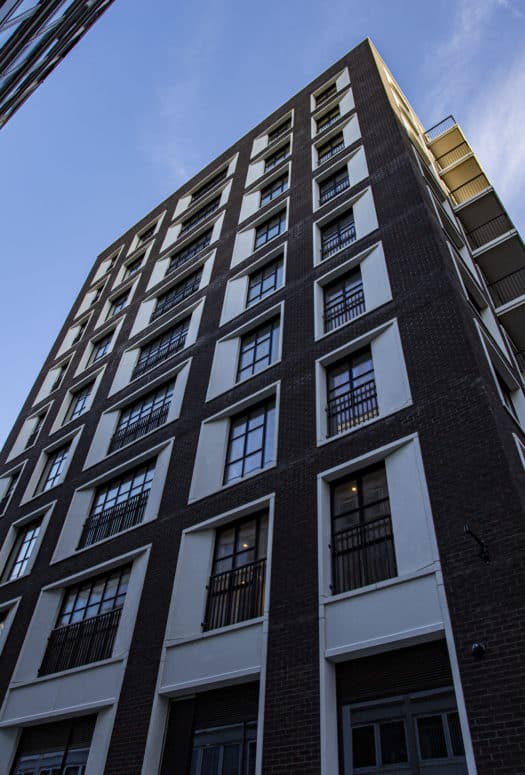What To Know Before Investing in London Property
By: LX Collection
London seems a perennially attractive opportunity for overseas buyers. But what do buyers need to know before making a purchase? LX Collection speaks to Luther Yeates, senior finance broker for Clifton Private Finance, who specializes in UK property finance for non-British buyers.
The property market in London has gone from strength to strength in recent decades. Even in these unpredictable times, we often see it billed as something of a “safe haven” for investors, including those from overseas. What’s so attractive about London? How does it differ from other markets in the UK and worldwide?
Asset-stability. English property ownership laws are probably the most robust in the world, which makes London a very attractive destination. For instance, overseas buyers of any property in the UK (houses, apartments, or land) have the same property ownership rights in law (and tax obligations) as UK citizens buying in their own country. You can sell it or pass it on to your heirs exactly as a British owner can. That’s not the case in Mexico, for example, where foreigners can only buy real estate within 60 miles of the border or 31 miles off the coast via a fideicomiso trust agreement, renewable every 50 years.
 Photo Credit: Greenwich Peninsula
Photo Credit: Greenwich Peninsula
Affordability. Currently the cheap pound is a factor. And the market offers comparatively cheap borrowing, even at the top end. Many US investors are used to paying 3 to 5% on their borrowing. But the London market welcomes overseas buyers from what are considered to be not-high-risk jurisdictions, and we can find our US clients rates of 2 to 3%. Risk is determined by your nationality and country of residence and your field of work. The USA is highly rated by the international money laundering and terrorist finance watchdog Financial Action Task Force (FATF).
The availability of high-value prestige properties means that investors can put all their wealth into one property rather than having to build a portfolio of properties to build the asset value they want to invest.
How does the buying process in the UK differ from the US?
US buyers are used to getting loan approval before they find a property. In the UK, you can get a Decision in Principle (DIP) on your financing in advance to show to realtors (“estate agents” in the UK). But your full mortgage approval will depend on the specific property you want to buy and the final buying price you have agreed on.
Similar to the US, in England, purchase isn’t assured until close to the end of the process, when contracts are exchanged, and a deposit paid. This may be just days before the “completion” date when full payment is made.
No one’s going to make you promises, but over the last 10 years, you’d have been looking at a profit of at least 50% for premium London real estate.
What should you be asking of your legal representation prior to buying?
It’s probably wisest to assume that everything is different from the system you know. Preferably, choose a British lawyer (“solicitor” in the UK) who is used to working with overseas clients. They’ll be aware of what you might need to be briefed on.
For example, one of our US clients assumed there was the same legal “right of assumption” in the UK as in the US. There isn’t. The couple were buying in the husband’s name only, for the sake of convenience, assuming that the mortgage would pass to the wife in the unfortunate case of the husband’s death. It wouldn’t—in the UK, the wife would need to apply for finance in her own name and might not qualify. So, we needed to quickly restructure the lending.
Which other specific things should an overseas investor be looking out for when investing in the UK?
Mortgage terms: US buyers are used to having a lifetime rate on their mortgage finance. It can come as a surprise to learn that in the UK, interest rates are usually only “fixed” for the first 2-5 years of their 20 or 25-year mortgage, and they then need to find a new deal to avoid reverting to their lender’s higher Standard Variable Rate.
Fees: Overseas buyers need to look out for the small-print lenders’ fees and “arrangement fees” that lurk behind many attractively low interest rates.
 Photo Credit: Courtesy of Battersea Power Station Development
Photo Credit: Courtesy of Battersea Power Station Development
A good mortgage broker may steer you towards a finance arrangement that has a slightly higher interest rate but will actually work out much cheaper for you overall.
Taxes: A UK government Stamp Duty Land Tax (SDLT, known as “stamp duty”) is payable on all property transactions: for first purchases from 2 to 10% of value (depending on the price of the property) and for additional properties from 3 to 15%. But there’s good news: the UK government announced a stamp duty “holiday” up until 31 March 2021 on home purchases valued up to £500,000—including for overseas buyers.
As of April 2021, the stamp duty will be reinstated, with an additional 2% surcharge payable by overseas buyers. Overseas investors are advised to move fast or to get independent tax advice on how they can minimize the tax impact of their holding.
When you come to sell, all UK property owners (whether resident in the UK or not) pay Capital Gains Tax of up to 18% on the growth in capital value of their property.
In the unfortunate event of your death, UK residential property is subject to inheritance tax (IHT) at 40%.
And is there a visa program associated with property purchasing in the UK if you’re from the US?
Yes, there is. US investors can qualify for a UK Tier 1 Investor Visa if they have £2 million ($2.67 million) or more to invest in the UK and you meet the other very straightforward eligibility requirements. And that sum can be invested wholly in property.
 Photo Credit: Principal Tower
Photo Credit: Principal Tower
The Tier 1 visa allows you to come to the UK for three years and four months. You can then apply to extend this visa for a further two years and then apply for permanent residency.
Foreign nationals who invest £10 million ($13.35 million) can apply for permanent right to reside after two years.
An experienced mortgage broker will be able to find property finance for you if you don’t currently have a visa.
How quickly can the investor expect to own a home?
UK property purchases usually take about six to eight weeks.
And what kind of value increase might you expect to see on a luxury London property in, say, 10 years?
No one’s going to make you promises, but over the last 10 years, you’d have been looking at a profit of at least 50% for premium London real estate.
The UK House Price Index (based on land price registry data) for London’s very desirable borough of Kensington and Chelsea shows an average increase in value of 57.4% over the decade to January 2020 (a 5.74% annual yield).
Can you lease a unit if you are not living in it? Is there a tax if it’s left vacant?
If your finance company agrees to a “permission to let,” you will be able to “let” or rent out your UK home if you’re not living in it. If the property was bought as a rental property with a view to generating rental income, it should be purchased on a different type of finance: a “buy to let” mortgage.
Some London borough councils charge empty property premiums on uninhabited homes—usually those that have been empty for more than two years.
What is the average length of ownership in London/the UK for an overseas investor?
Many US investors buy a premium London property not for income generation or short-term capital growth but as a long-term store of capital. Because there’s a limited supply of property in the city’s prime locations, they’re happy to retain ownership for 10 or 20 years or more.
Others may be encouraged by their private bank lender to review their finance arrangements after five years and may take the opportunity to take their capital gains after five or 10 years.
LX Collection is not an investment, legal, tax or real estate advisor, and LX Collection does not provide investment advice or recommendations of any kind whatsoever. The views expressed in this article are solely those of the interviewee and not of LX Collection. Users of this website should seek independent financial advice from a professional who is aware of your facts and circumstances in connection with any investment and to verify any information that you find on this website and wish to rely upon.










